
Why Your Chosen Family Matters: Building Stronger Relationships
As the holiday season approaches, many of us are reminded of the importance of family and the warm memories of this time of year. However, this season can be a stark reminder of difficult family dynamics or even estrangement from relatives for some of us. This is where the concept of a "chosen family" becomes crucial. In this blog post, we will discuss what a chosen family is and why it is essential, especially for those who may not have a supportive or loving blood family. We will also touch on ways to connect with your chosen family this holiday season.
What is a chosen family?
A chosen family is a group of close friends or loved ones intentionally chosen to be a support system. They may not have any familial relation to you, but they are the people you turn to in times of need for comfort, advice, love, and support. This kind of family structure is most common in LGBTQ+ communities, where many individuals may experience rejection and lack of acceptance from their biological families.
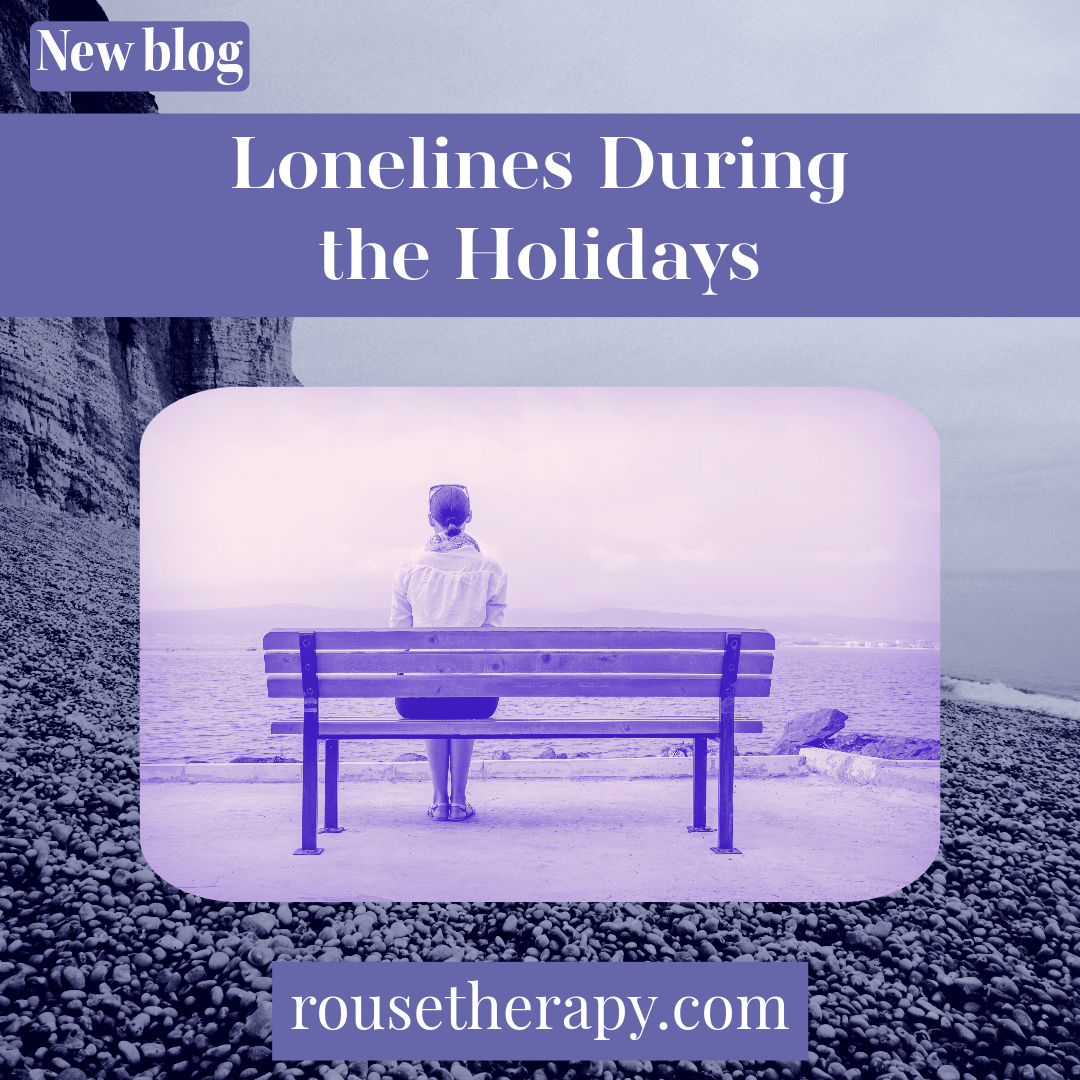
Loneliness During the Holidays: Understanding and Overcoming It
Loneliness During the Holidays: Understanding and Overcoming It
The holiday season is upon us, with its cheer, festivities, and family gatherings. While many people thrive in such an environment, for others, it can be a time of profound loneliness, isolation, and anxiety. Loneliness during the holidays is more common than we might think. Still, it's often stigmatized, misunderstood, and swept under the rug. In this article, we'll explore the prevalence of loneliness in the United States, what it feels like during the holidays, and three quick tips for reducing it. Read on if you're struggling with loneliness or know someone who does.
The prevalence of loneliness in the United States:

Self-Compassion & Boundaries During the Holidays
We often feel overwhelmed with family get-togethers, work parties, and social events as the holidays approach. While it's supposed to be a time of joy, we tend to put too much pressure on ourselves to make everything perfect. This can lead to feelings of stress, anxiety, and burnout. Today, we'll discuss the importance of self-compassion and boundaries during the holidays and share some communication skills using DBT techniques. We'll also discuss the importance of setting boundaries, resourcing oneself, and ensuring we care for our mental health.
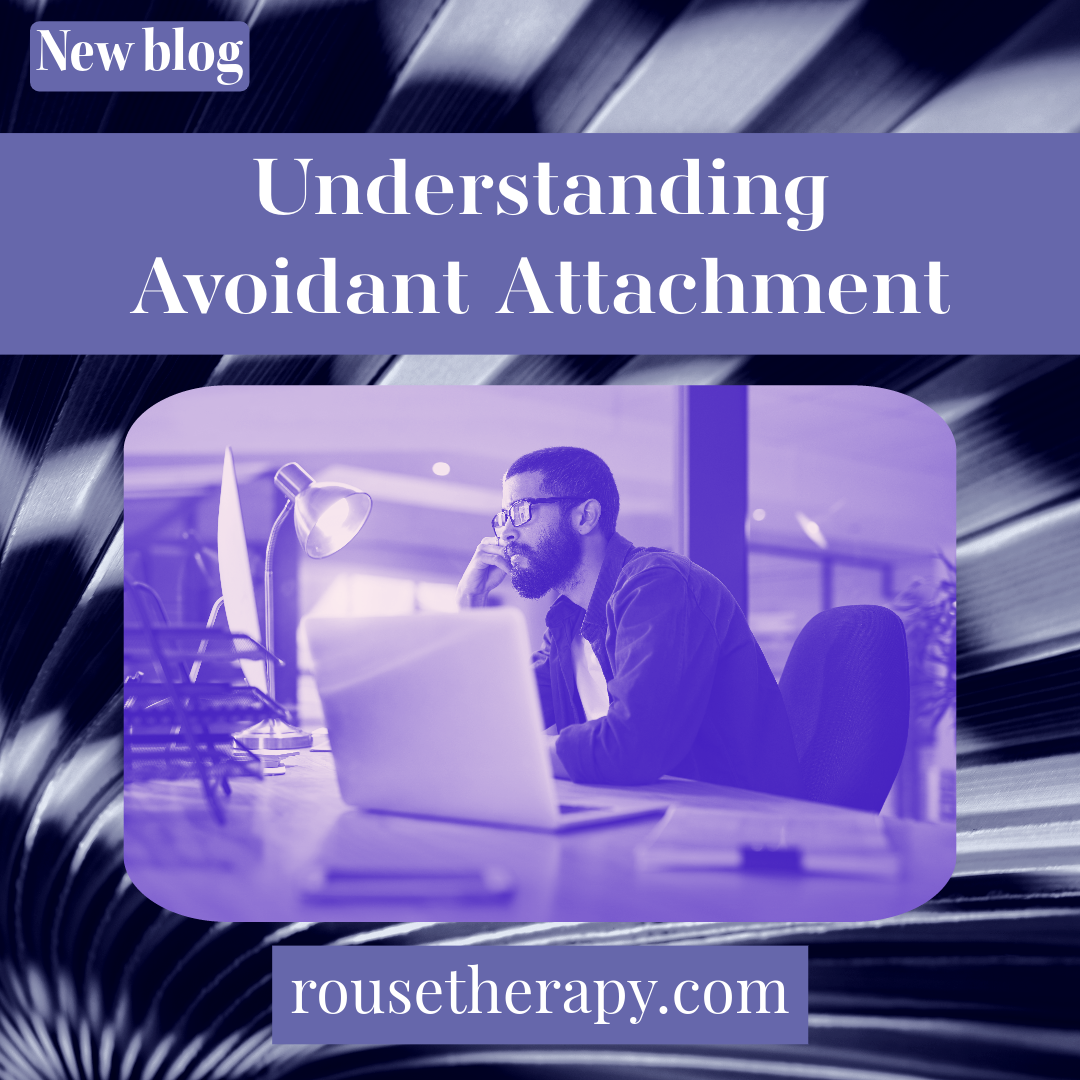
Understanding Avoidant Attachment: Developing a Secure Attachment
A strong relationship is one of the most satisfying aspects of our lives. It's a bond that we all desire, but unfortunately, some individuals struggle to form a healthy attachment due to past experiences or events. One particular attachment style that leaves many people feeling lonely and unfulfilled is avoidant attachment. This type of attachment can cause individuals to distance themselves from emotional closeness, leaving their partners feeling neglected and misunderstood. In this blog post, we’ll explore the origins of avoidant attachment and how individuals can develop a more secure attachment style.
Avoidant attachment originates from early childhood experiences, including neglectful or inconsistent care from primary caregivers. As discussed in Bowlby’s attachment theory, the lack of connection between children and caregivers creates a feeling of anxiety, which leads children to develop strategies to protect themselves from pain. Unfortunately, these strategies continue into adulthood, leading them to avoid emotional closeness and intimacy.
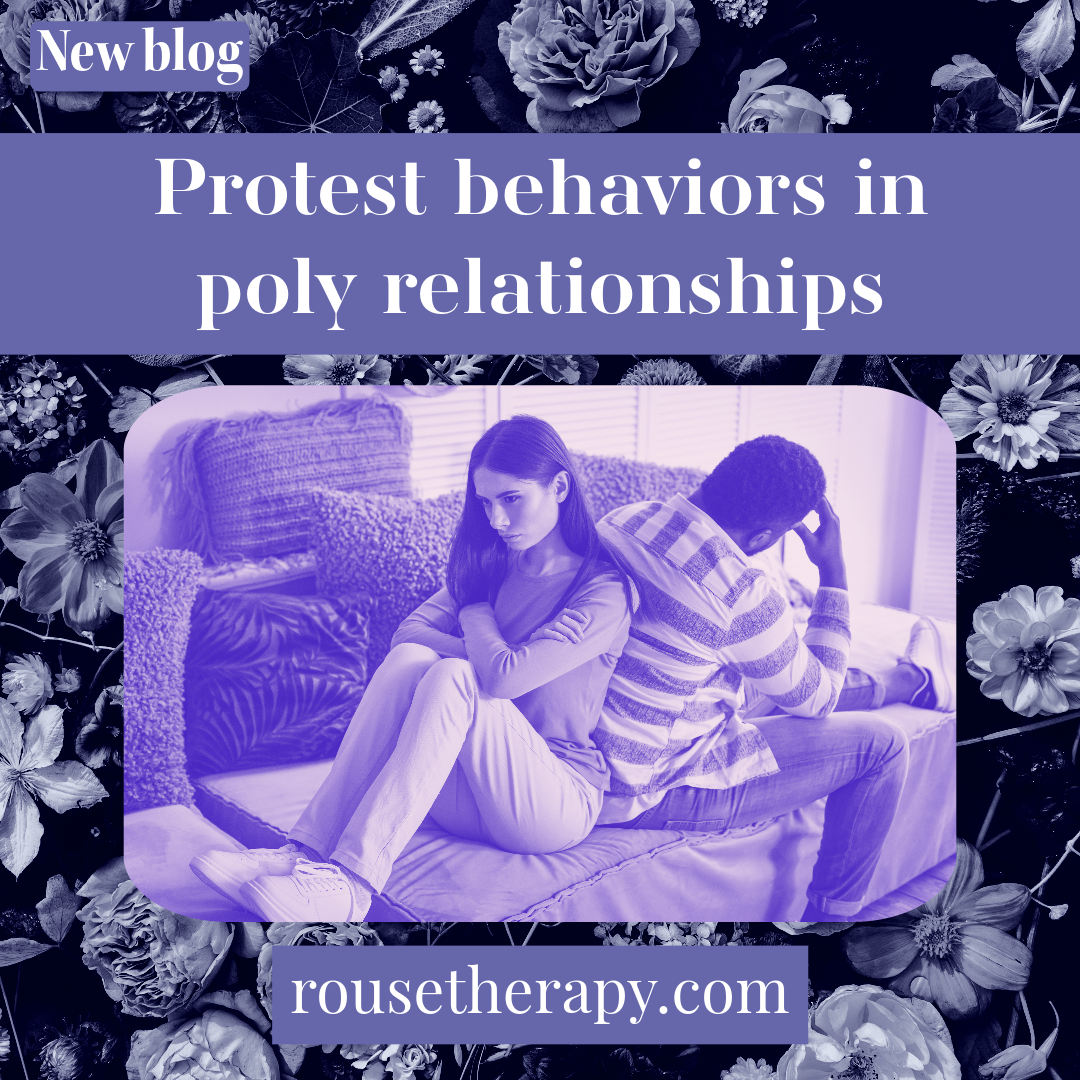
Protest behaviors in poly relationships
At Rouse Relational Wellness, we understand that polyamorous relationships come in all shapes and sizes. Whether you're solo poly or have multiple partners, it can be hard to navigate the complex dynamics inherent in these relationships. To help guide this topic, we'll discuss three common protest behaviors that couples navigating polyamory may encounter.
Calling on Attachment Theory
Before diving into the three protest behaviors, let's briefly touch on attachment theory and how it applies to polyamorous relationships. Attachment theory is a psychological framework that explains how our early experiences with caregivers shape our behavior patterns in close relationships throughout our lives. These patterns can show up in romantic relationships and impact how we communicate, navigate conflict, and form attachments with others.
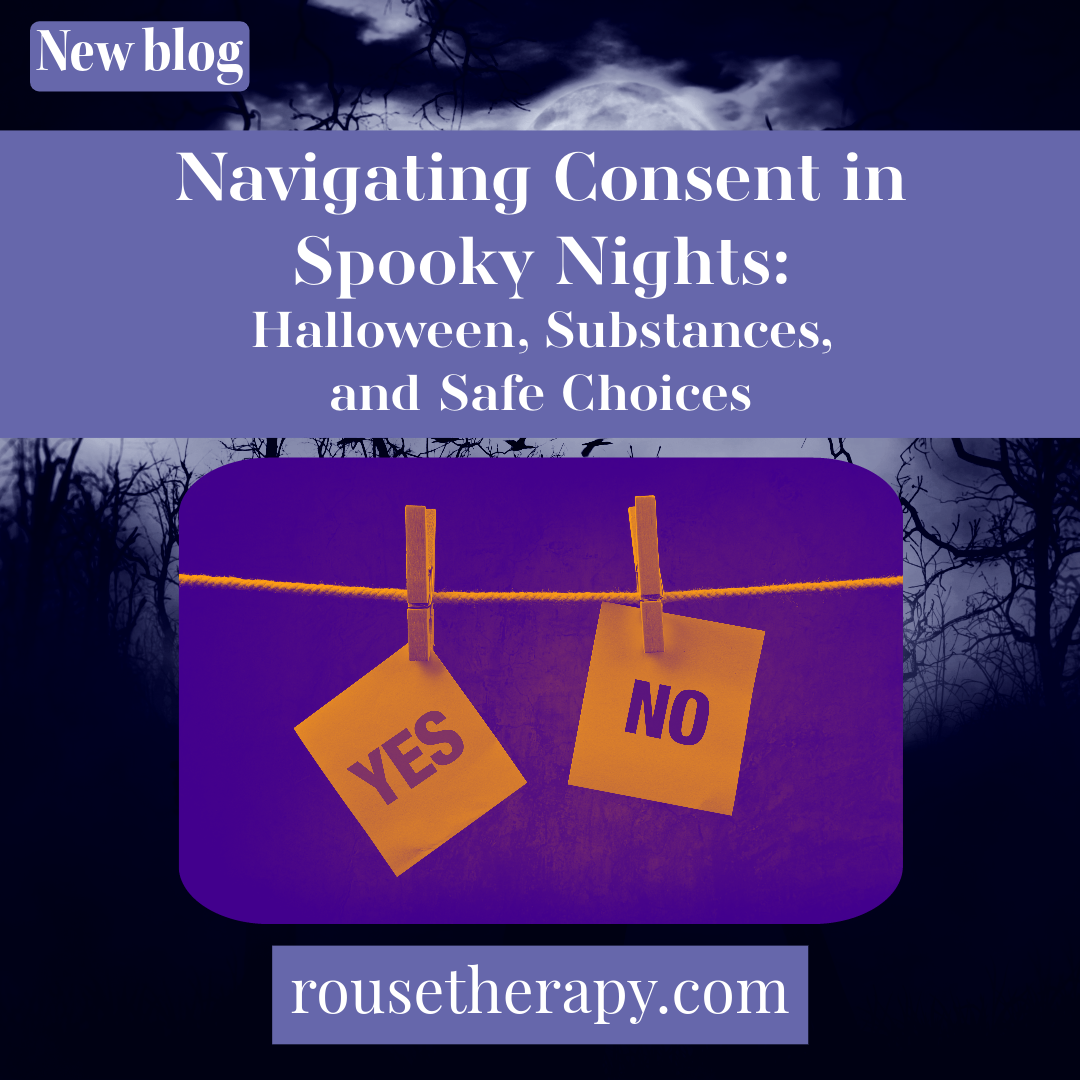
Navigating Consent in Spooky Nights: Halloween, Substances, and Safe Choices
Halloween is a night of fantasy, costumes, and revelry. It's a time when adults often gather to celebrate with themed parties and events. While Halloween is a time for fun and excitement, it's essential to remember that consent remains a vital aspect of any sexual encounter. In situations where substances are used, such as alcohol or recreational drugs, the importance of clear and informed consent becomes even more critical. This blog post aims to guide you through the nuances of expressing and reading consent in sexual situations during Halloween festivities involving substances, with a focus on maintaining safe and respectful encounters.
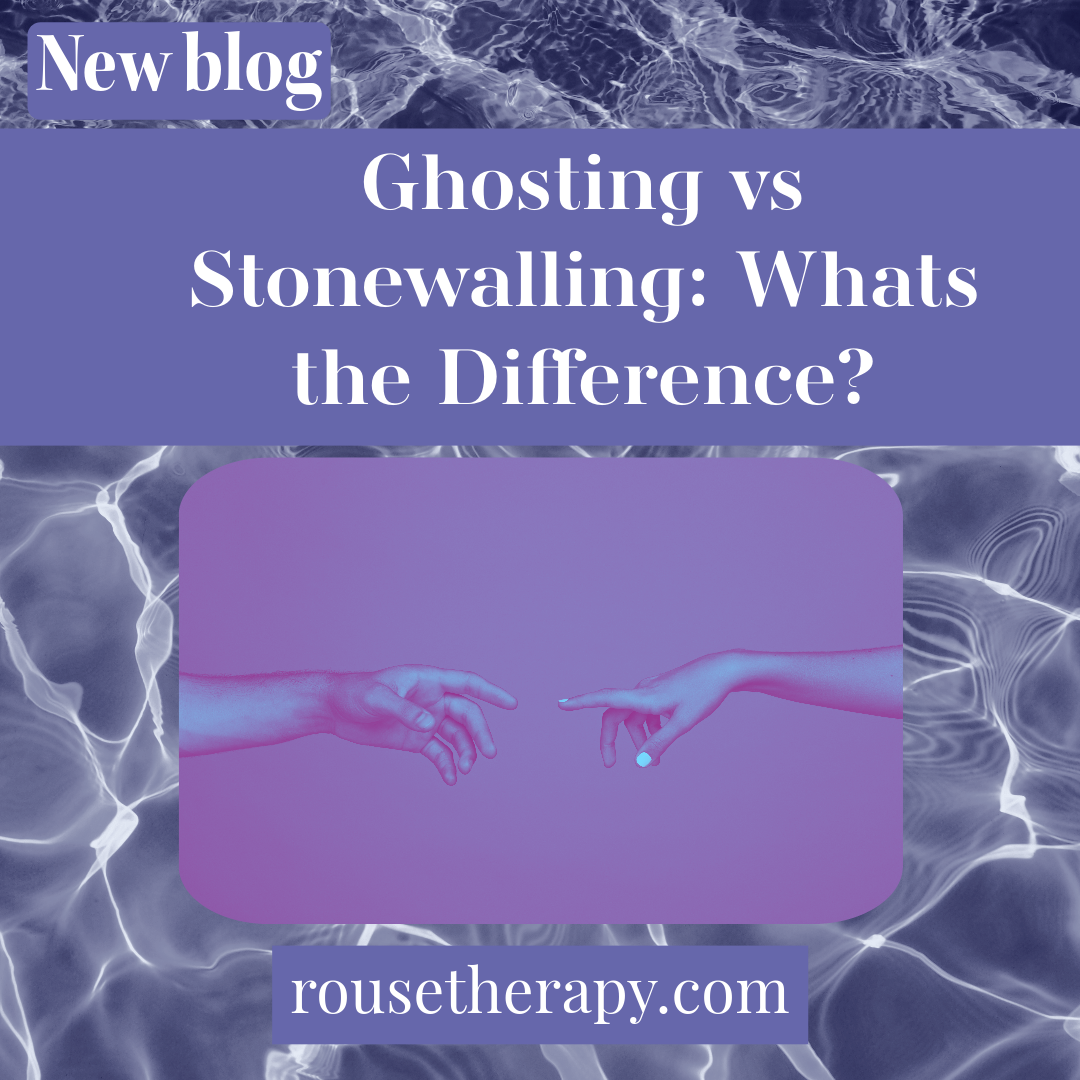
Ghosting vs Stonewalling: What’s the Difference?
We have all experienced the pain of being ignored or shut out by someone we care about. Whether it’s a potential date that never calls back or a romantic partner who suddenly goes silent, it can devastate our self-esteem and sense of security in relationships. In these situations, it can be easy to confuse ghosting and stonewalling, two common behaviors that create distance and emotional turmoil in relationships. This article will dive deep into the difference between ghosting and stonewalling, their impact on relationships, and how to overcome them for a healthier, happier love life.

Ghosting: Why Do People Choose to Disappear?
Halloween is just around the corner, and while ghosts may be a nostalgic and thrilling part of our spooky season, ghosting is a serious and unfortunate reality for many people. Ghosting is a term used to describe the act of suddenly and without explanation, disappearing from a person's life or communication, leaving the other person feeling bewildered, hurt, and confused. Ghosting can happen in friendships, work relationships, and romantic relationships. Couples therapy can be an excellent place to approach ghosting or stonewalling within relationships. Today, we will delve into the possible reasons why people choose to ghost their partners or dates and discuss how it can impact the other person.

Healing Trauma Beyond Words: The Power of Brainspotting
Trauma can be an intricate and deeply rooted experience that is often difficult to work through with only talk therapy. Brainspotting offers a method to access and heal trauma on a deep and neurological level. Let’s explore how Brainspotting can be a game-changer for clients who have tried talk therapy and are seeking a more effective way to heal from their trauma.
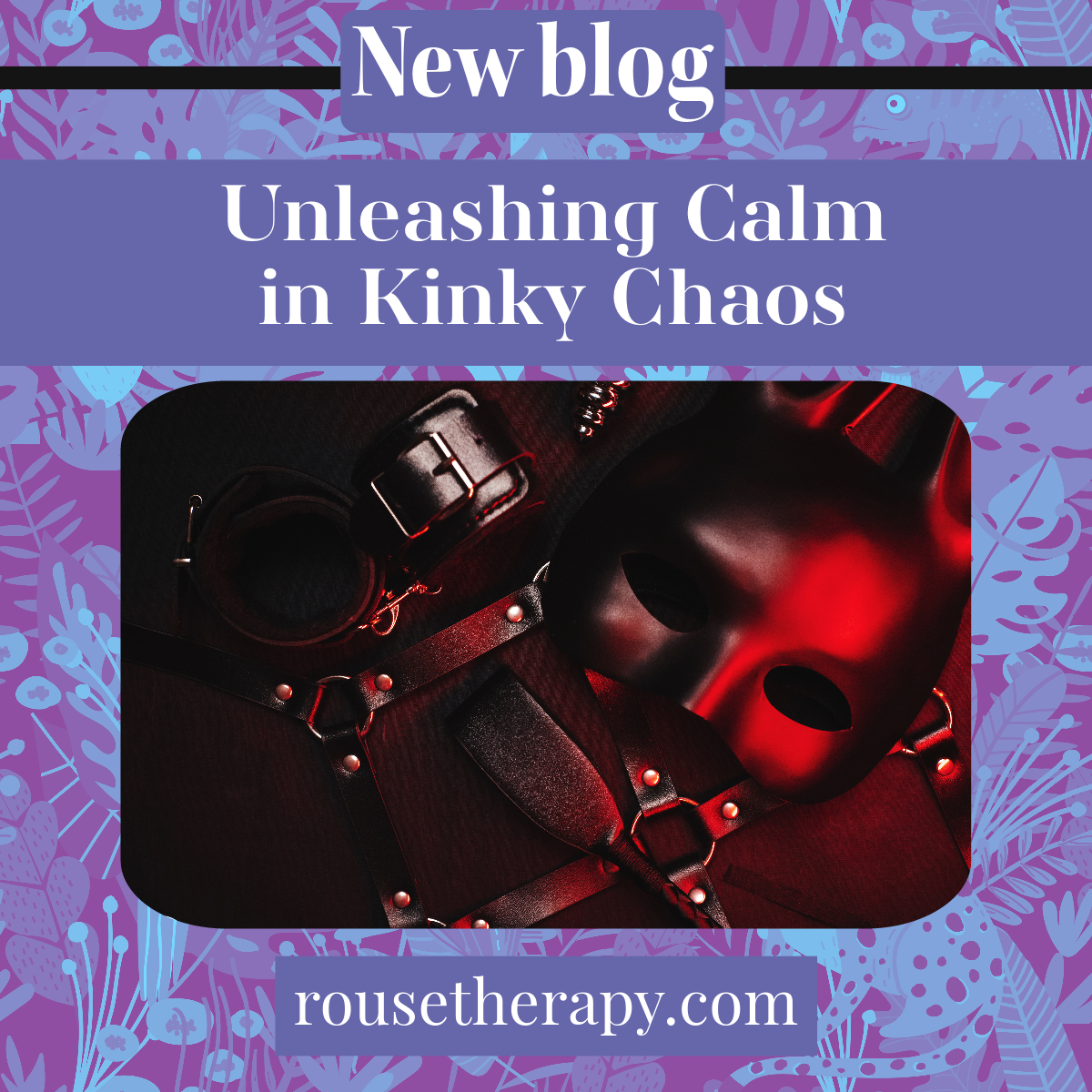
Unleashing Calm in Kinky Chaos: Tips for Managing Anxiety at Events like Folsom St Fair
The Folsom St. Fair is an annual BDSM and leather street fair that attracts thousands of people to San Francisco for a day of extravagance and exploration. As exhilarating as this event can be, it can also be overwhelming, especially for people who experience anxiety or stress. Let's explore ways to calm your nervous system and ground yourself during big events like Folsom St. Fair using tips from the workshop "Unleashing Calm in Kinky Chaos," led by David Khalili, LMFT, Founder of Rouse Relational Wellness.

Change your approach to sex
When it comes to sex, society has taught us that it's a linear process. We are expected to escalate activities until we reach the ultimate goal: penetrative sex. However, this approach can be limiting and stressful for many people. The circular model of sex provides an alternative way to explore intimacy, where pleasure is the ultimate goal, not just getting to a specific sexual act. Let's look at the differences between the two models and how embracing the circular model can lead to a more fulfilling and pleasurable sexual experience.
Note: this article is based on the workbook by David F Khalili, LMFT, Sex Worriers: A Mindfully Queer Guide to Men's Anxiety to Sex and Dating

Should guys do pelvic floor exercises too?
As men, we often focus on building upper body strength while neglecting the importance of training our pelvic muscles. Little do we know that the pelvic floor is a group of muscles that work together to support the bladder, bowel, and other pelvic organs. When these muscles weaken, it can lead to urinary incontinence, erectile dysfunction, and other complications. In an article from earlier this year, Dr. Karah Charette, a pelvic floor physical therapist, shared how pelvic floor exercises help with sexual dysfunction. Building off that, we will discuss the importance of pelvic floor exercises for men and provide helpful videos to get started.

Why Some Wait So Long to Start Couples Therapy
Relationship issues can be challenging, and it's not uncommon for couples to wait years before seeking professional help. According to the Gottman’s, couples often wait up to six years before addressing any serious issues in their relationship. This decision could be based on various reasons, from trying to fix it on their own with self-help books, therapy podcasts, and workshops to not wanting to admit that there's a problem because it could raise more significant questions. We believe that couples should normalize these feelings but seek professional support when their issues start to repeat and remain unresolved.
Trying to fix it on their own
Many couples avoid therapy because they believe they can fix their relationship issues on their own. They read self-help books, listen to podcasts, and attend workshops, thinking they can solve their problems without professional help. However, while there's nothing wrong with reading or listening to advice from relationship experts, these resources only provide general tips and can't substitute professional and specialized support. Ultimately, each relationship is unique, and each case requires an individualized approach that considers all aspects of the dynamic.
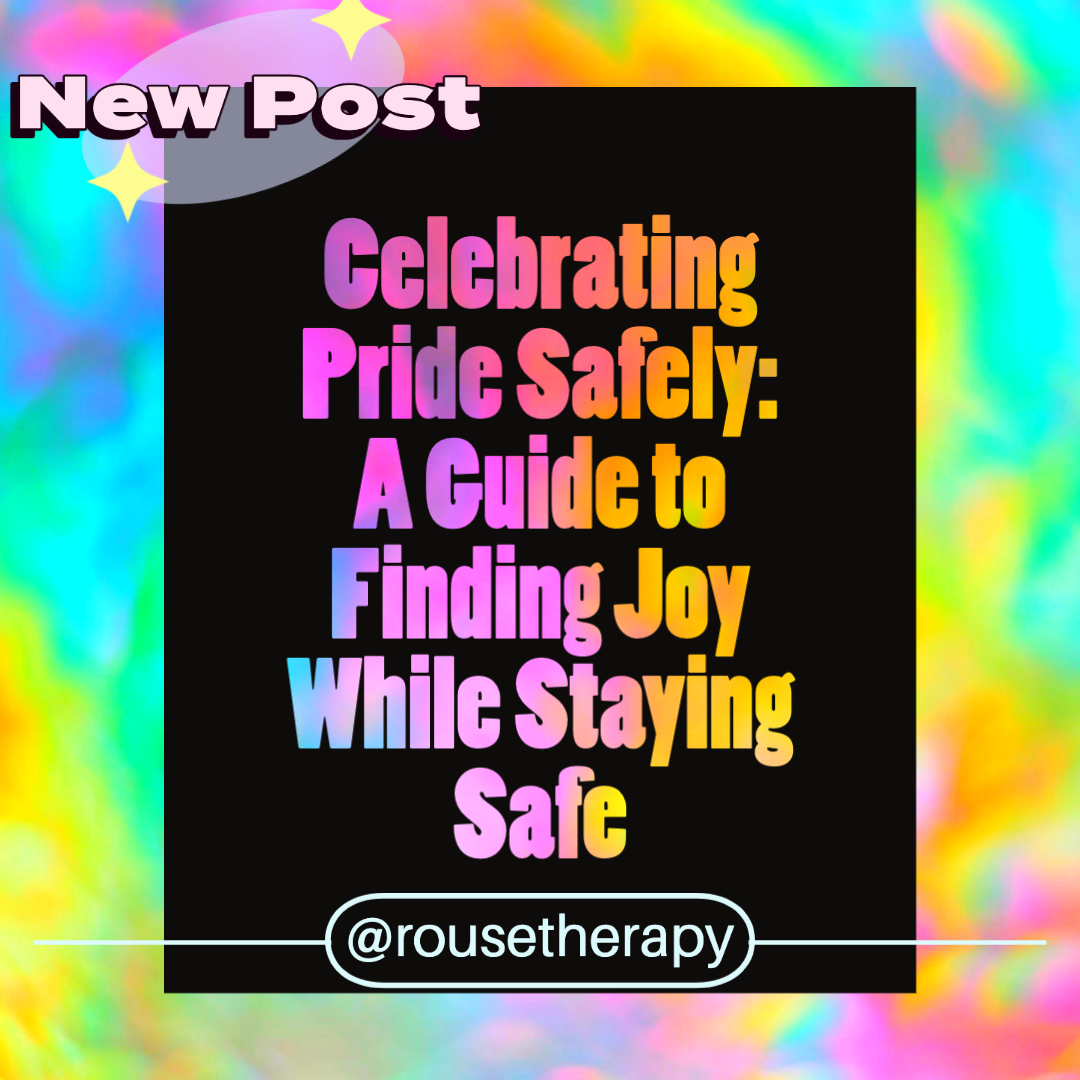
Celebrating Pride Safely: A Guide to Finding Joy While Staying Safe
For many in the LGBTQIA+ community, that means participating in Pride festivities. While these celebrations can be a great way to connect with others and show your pride, it’s important to prioritize your safety. In this blog post, we’ll share tips and insights to help you stay safe and find joy during this year’s Pride festivities.
Stay in Groups - One of the most important ways to stay safe during Pride is to stay in groups. Traveling with friends or participating in group events reduces the risk of experiencing harm or violence. Designate a buddy or two to stay close to you throughout the day. This way, you can watch each other and have someone to turn to if something feels off. Alternatively, you can cheer them on from afar as they chat up that cutie they were checking out.
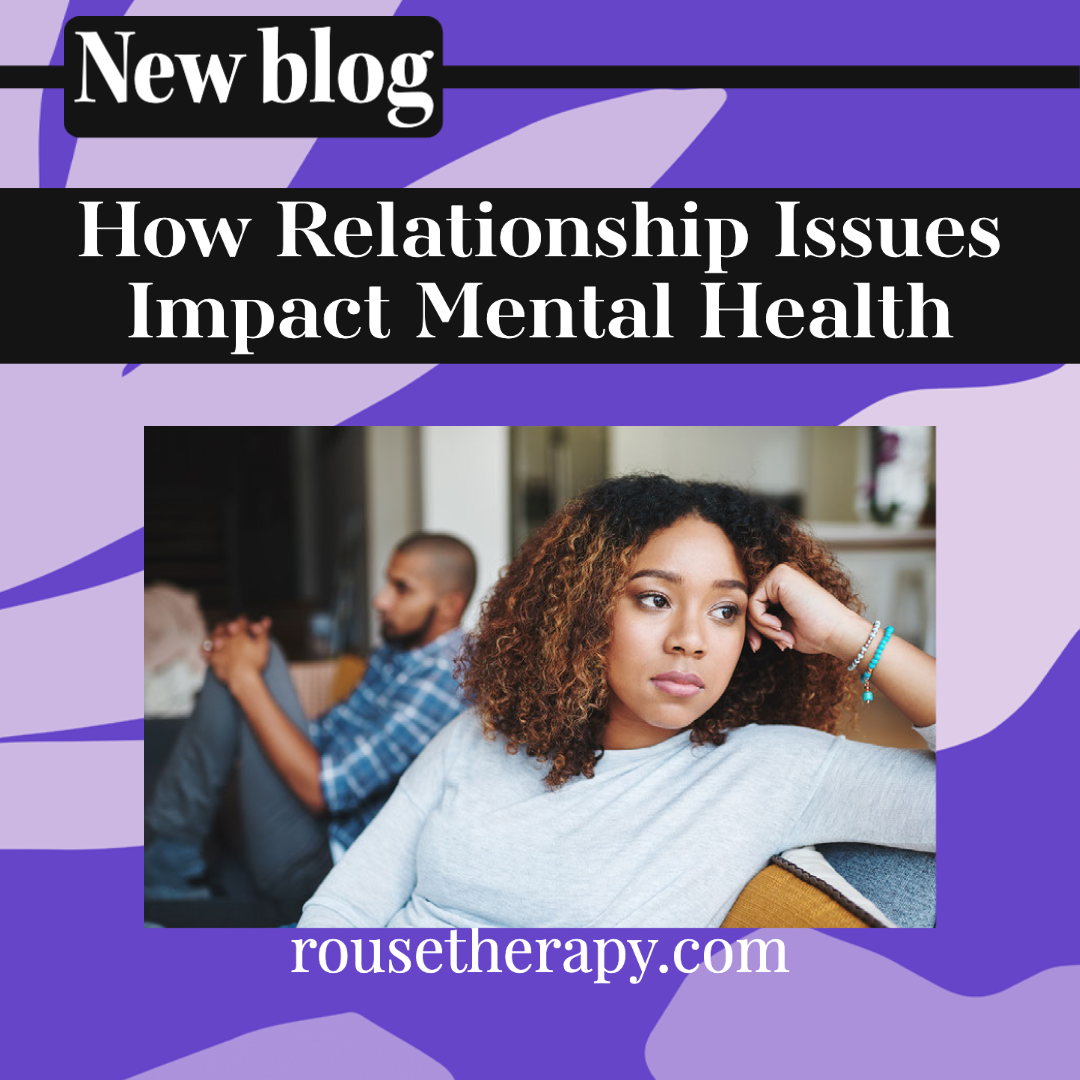
How Relationship Issues Impact Mental Health
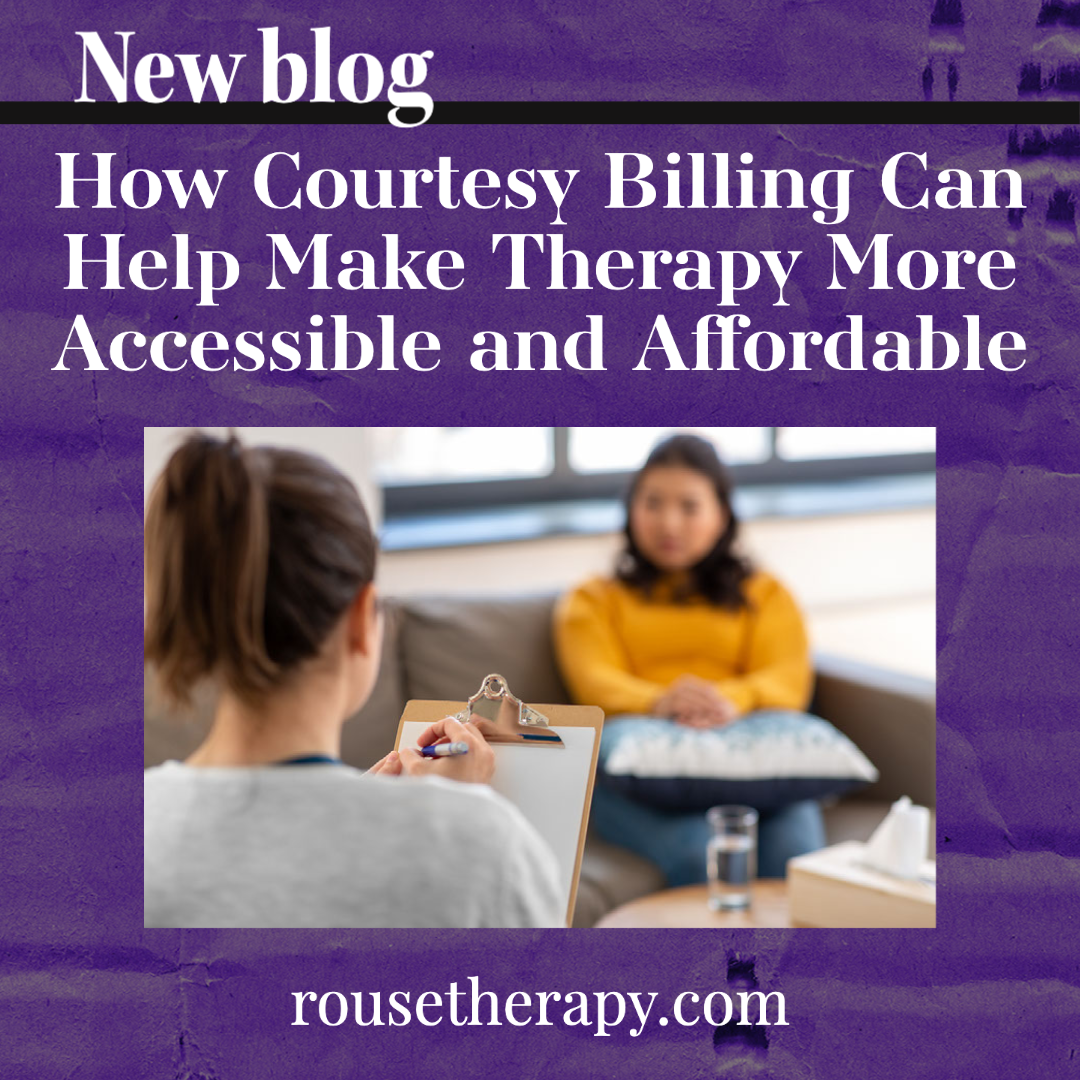
Courtesy Billing: Making Therapy More Accessible and Affordable
Access to mental health support has always been a challenge for many people. According to the National Institute of Mental Health (NIMH), around 1 in 5 adults in the US experience some form of mental illness every year (1). Despite this staggering statistic, it is estimated that nearly a third of US adults who need mental health care don't get the help they need. Cost has always been a significant barrier to accessing mental health care (2). However, thanks to courtesy billing, therapy is becoming more affordable and accessible than ever before.
What is Courtesy Billing?
When you hear the term courtesy billing, it means that your therapist will file your insurance claim on your behalf. With courtesy billing, you pay the therapist directly for the services provided. This payment usually gets processed on the same day as your appointment or it could be at the end of the week. Your therapist will then file the claim, and your insurance company sends the reimbursement directly to you.
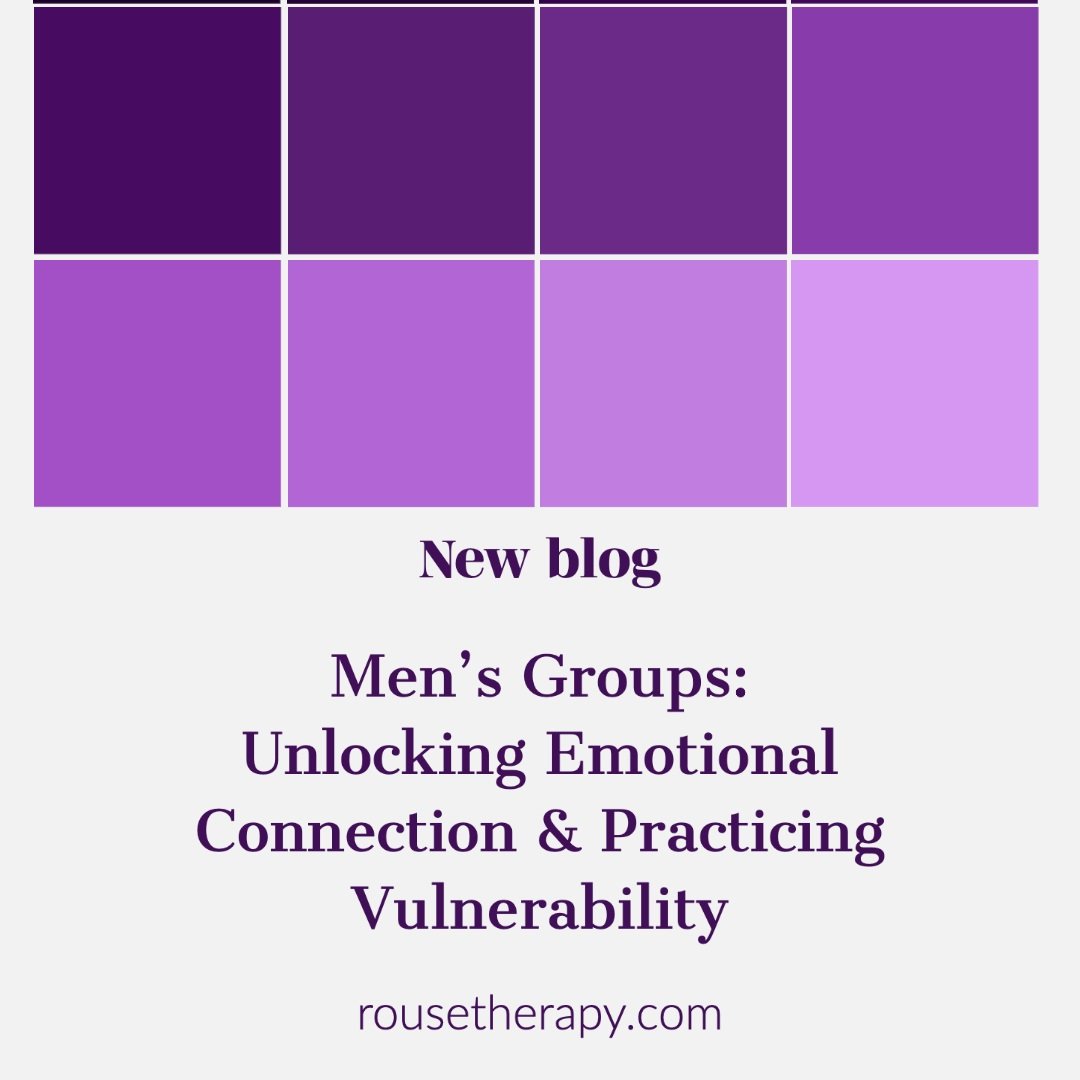
Men's Groups: Unlocking Emotional Connection & Practicing Vulnerability
We continue recruiting for our Anxiously Intimate online men's group in our straight-leaning and queer-learning cohorts. We’ve received a lot of interest and intrigue in our groups and different questions about how the groups are run. So, to help you with your decision to join the group or share with a friend or client, we’ve created this FAQ for more details.
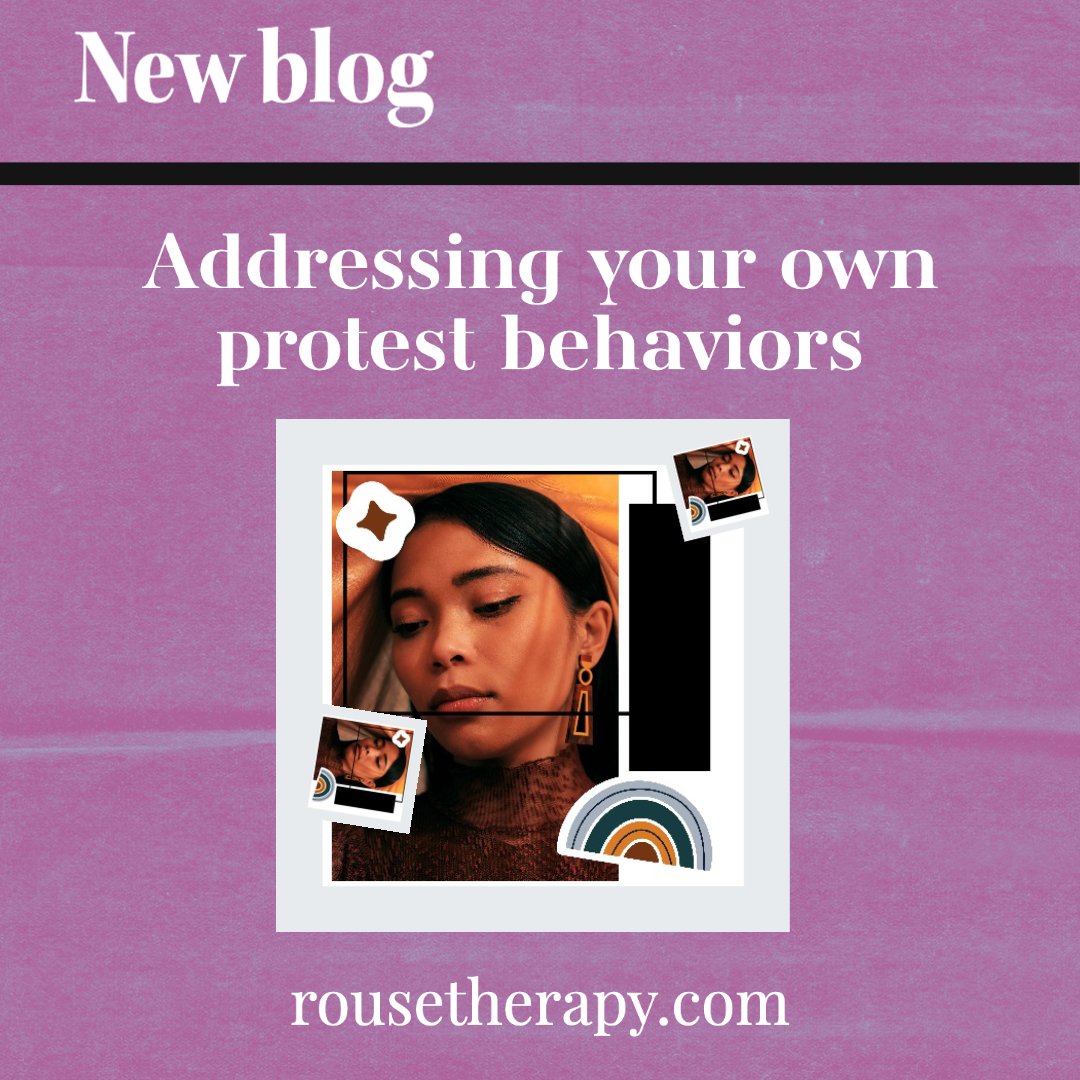
Addressing your own protest behavior
Relationships are not always easy and can be filled with complications. When disagreements arise, the way each person reacts is crucial. Sometimes when individuals feel unheard, they may resort to protest behaviors. Have you ever found yourself in a situation where you just couldn't stop reaching out to someone, demanding attention, or even starting arguments? If so, you might have unknowingly engaged in protest behaviors related to your attachment style. These behaviors often arise when we experience anxiety in a relationship, and they're a way of trying to maintain the connection with our partner. However, protest behaviors can sometimes come off as clingy or even manipulative, so it's important to recognize them and address them healthily. Understanding the roots of your protest behaviors can help you cultivate a more fulfilling love life, whether navigating a new romance or a long-term relationship.
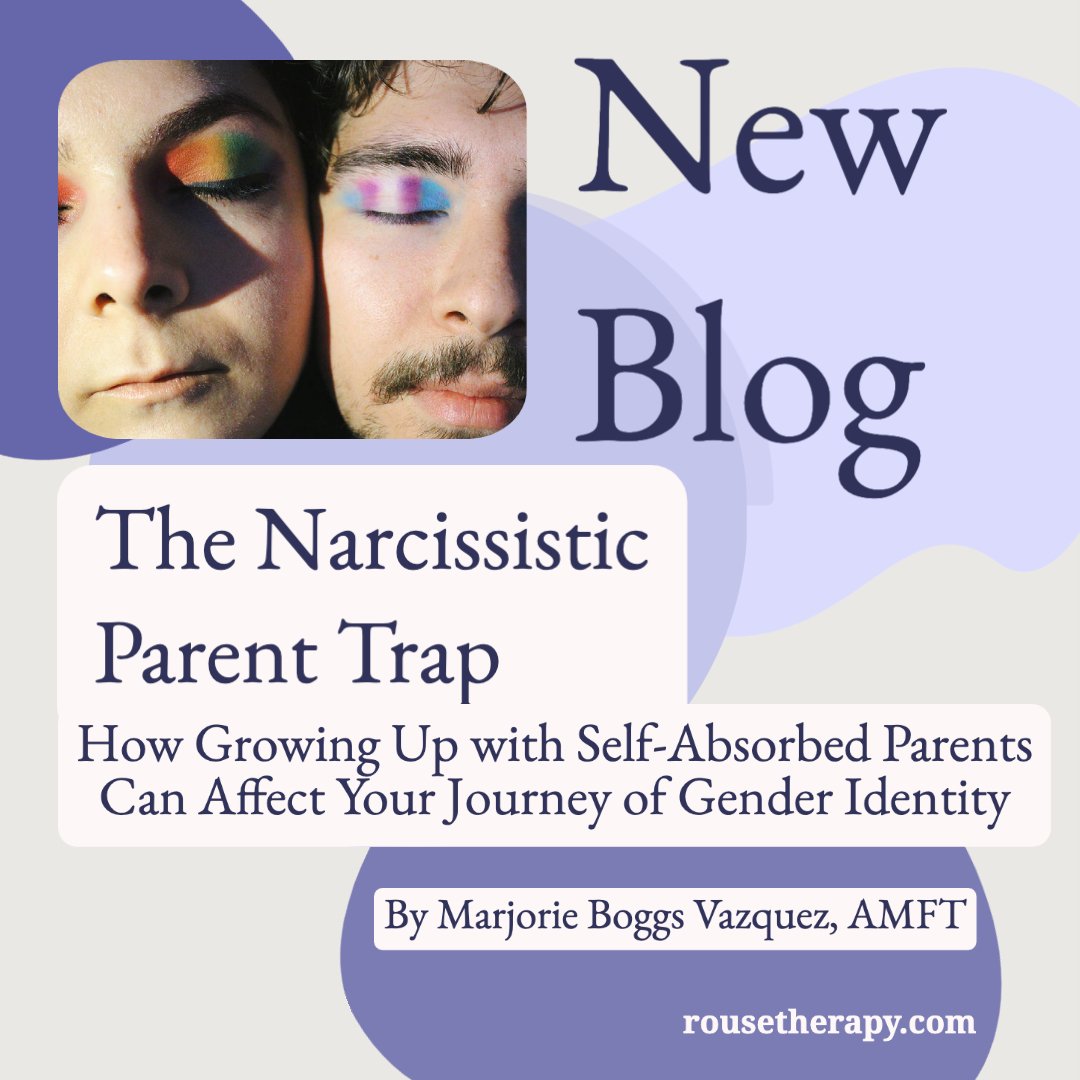
The Narcissistic Parent Trap: How Growing Up with Self-Absorbed Parents Can Affect Your Journey of Gender Identity
Exploring gender is a complex and multifaceted internal process that involves understanding, experiencing, and questioning one's own gender identity, expression, and roles within societal norms and expectations. It is a process that begins in childhood and continues throughout adulthood.
At the core of exploring gender is the process of self-discovery. While this is doable independently, it is best done with support, like friends or a therapist. This process may involve introspection, self-examination, and self-acceptance, as individuals strive to understand and embrace their own unique gender identity. It’s often not a single exploration, but rather something that happens over and over again.

Don't Suffer in Silence: Talking to Your Partner about Pain During Sex
Sex is supposed to be enjoyable and satisfying, but it can be physically painful for many women. Maybe you experience discomfort during penetration or find that your vaginal area is sore afterward. But do you talk about it with your partner? If you don't, you're not alone. It's natural to feel embarrassed or uneasy about sharing this type of information, but keeping quiet only prolongs the problem. That's why in this blog post, we will discuss the importance of talking to your partner if you have pain during sex.